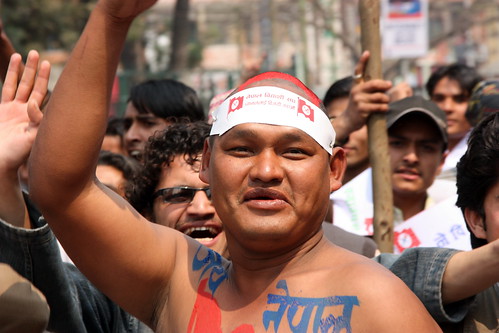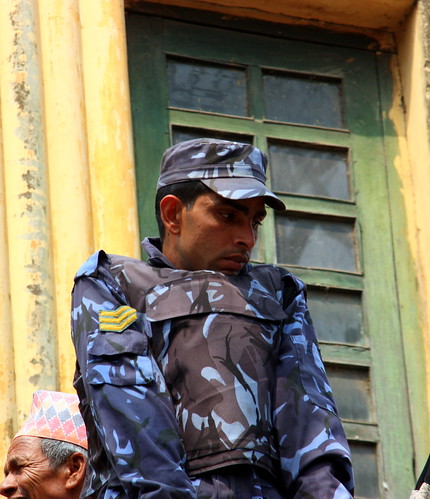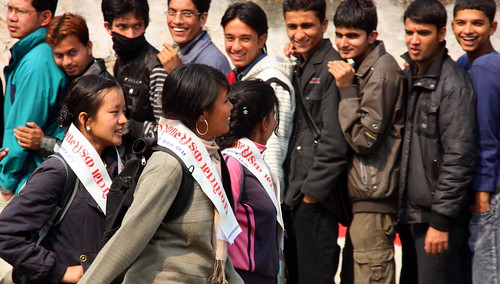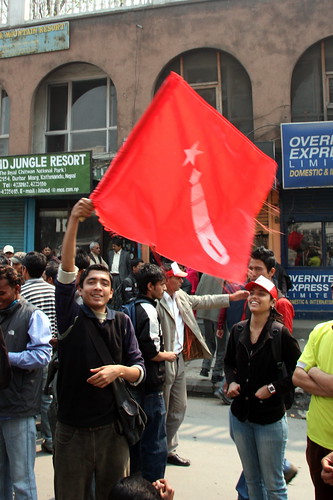It's raining. That's fantastic.
Mind you, it's not coming down hard, and the sky is giving us fitful volleys of hail along with the rain. But I'm optimistic that it will disperse a bit of the suffocating ABC (Asian Brown Cloud) that's currently choking Nepal, along with most of South Asia. The ABC is a kilometres-thick layer of haze and soot, an unhappy consequence of unregulated vehicles and power plants, burning agricultural waste and literally billions of cookfires fueled by wood or cow dung. It reduces sunlight so much that it's been markedly colder here the last couple of weeks, obscures anything a kilometre away and, incidentally, kills millions of people each year. It's both fascinating and horrifying, and I'm eager for the end of it, which will only really come with the start of full monsoon rains in May or June. Today's short shower is only that, and sadly it's already over. Damn.
In other news, the Nepalese Free Student Union, a student government pervasively aligned with the uncountable, incomprehensible political parties, held its elections this week. Since most of the affected campuses were between me and my office, I skipped work for the day and took photos instead. This being Nepal, it's inconceivable that such an event wouldn't cripple traffic across the entire city. The elections blocked Durbar Marg, the main North-South street in central Kathmandu, for the entire day. Traffic would have a rough time getting through this:

The enthusiasm was remarkable, and occasionally unsettling, given the alignment of the various student parties with larger political groups who cheerfully demonstrate their capacity for violence whenever given the opportunity. There was even a super-fan, with his support painted across his body, leading a marching rally:

Police, either fearing violence or eager for it, kept a careful eye on the whole thing:

Oh, and Nepalese students are still rather like ours, give or take a few years, in some fairly universal ways:

But there's no denying the marked fervour of the whole process, relative to the much-ignored (but nearly as corrupt) process of student politics in Canada.

I spent a few hours there, curious as to whether the zeal would turn to aggression and the relative order to a maelstrom. Most students cheerfully obliged my intrusions with my camera and, satisfied that things might actually remained peaceful, I took off.
Later in the day, riots at polling stations in East Nepal (and the heavy-handed police response) killed one student and injured hundreds, some of whom are not expected to survive their wounds. Pipe bombs went off at university poll about 90 kilometres from here, wounding six students. This is Nepal, after all - can't have things being settled by a free and peaceful election, can we?
I neither know nor care who won the election.